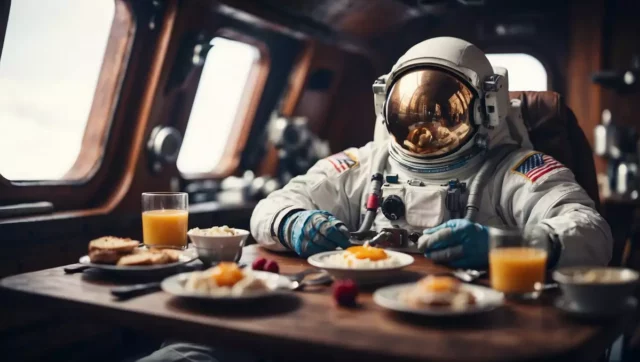### Title: New Research Unveils Impact of Taste Perception Changes on Astronauts in Space
Recent research conducted by Australian scientists has revealed that astronauts experience shifts in taste perception during space missions due to not only microgravity but also personal sensory characteristics and stress from isolation. This finding is significant as it enhances the comfort of space travel and has direct implications for the health of astronauts.
One critical concern is ensuring that astronauts consume adequate calories during missions. If food is unpalatable, it may hinder their ability to maintain necessary caloric intake. While sauces and condiments can partially mitigate this issue, their use is limited due to potential allergic reactions — a particularly pressing concern for long-term missions to the Moon or Mars.
The reactions of astronauts to changes in taste have proven to be varied and unexpected. Some individuals report significant alterations in their taste experiences, while others notice little to no change. For instance, familiar foods may become unpleasant for some, whereas others might find their flavors altered or even develop new favorites. Despite ongoing studies on space travel for over six decades, the mechanisms behind these taste changes have remained largely unexplored.
Research has identified two primary factors contributing to alterations in taste perception in space. Firstly, microgravity causes a redistribution of fluids in the body, which can also affect taste sensitivity. Secondly, the conditions in which food is stored and prepared in space play a pivotal role in its flavor. However, these explanations do not encompass the full complexity of the phenomena.
Researchers from the Royal Melbourne Institute of Technology have hypothesized that changes in taste may be linked to individual variations in taste and smell perceptions, which may become heightened under the stress of isolation. To test this hypothesis, an experiment was conducted simulating the environment of the International Space Station (ISS) through virtual reality. Fifty-four participants assessed the intensity of various smells in both neutral laboratory settings and in the virtual environments replicating the ISS. The results indicated that the aromas of almond and vanilla intensified in the virtual reality scenario, while citrus scents remained stable. This suggests that stress and isolation can increase sensitivity to certain aromatic compounds.
This breakthrough opens up exciting new avenues for research in the field. An intriguing aspect revealed by the study is the differential reactions to various flavoring substances; vanilla and almond contain benzaldehyde, which is absent in citrus fruits. This may clarify why specific scents become more pronounced under stress. As investigations continue, understanding the nuances of taste perception in space could lead to enhanced dietary strategies for astronauts, ultimately improving their health and mission outcomes during future explorations beyond Earth.





